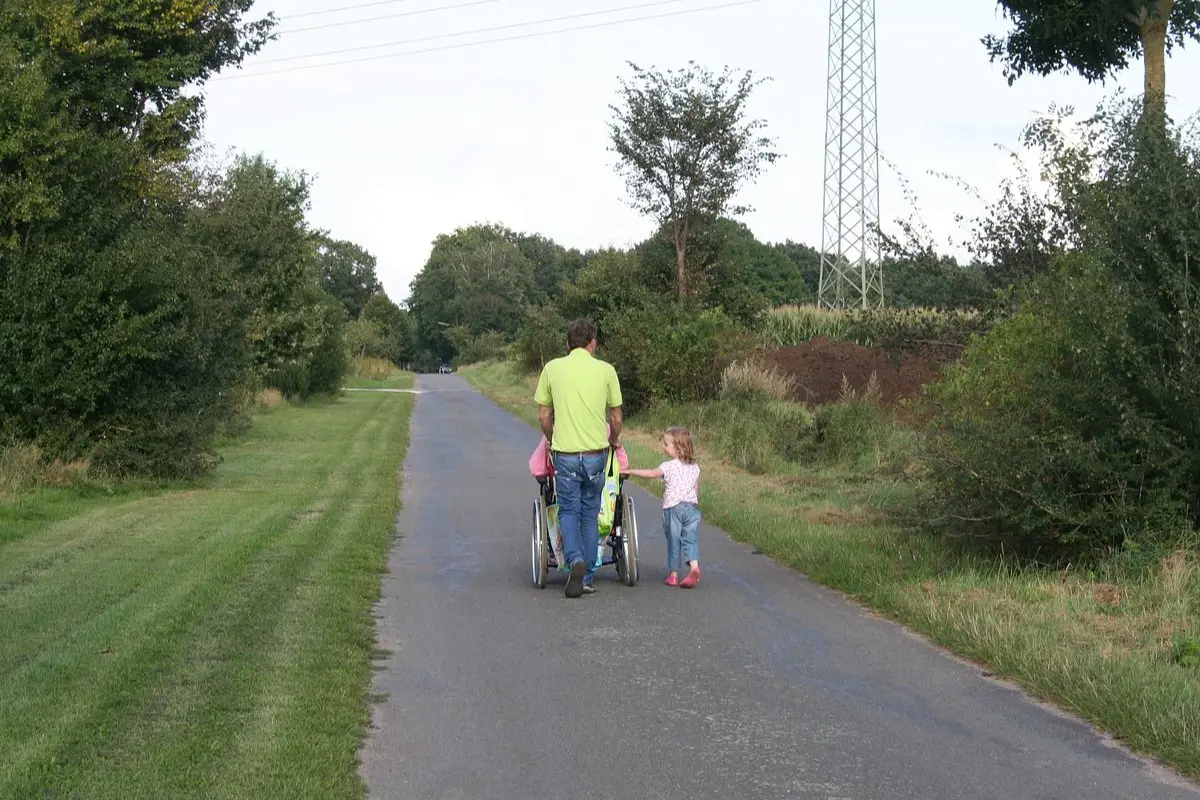RV camping allows families to connect with nature, create lasting memories, and embark on exciting adventures together. For families with special needs, RV camping can be an enriching and fulfilling experience, but it also comes with unique challenges. With thoughtful planning, accessibility considerations, and the right resources, RV camping can be an excellent way for families with special needs individuals to enjoy the great outdoors.
Understanding the Needs of Special Families
Before diving into RV camping, it’s essential to understand the unique needs and challenges that families with special needs members may face. Every special needs individual is different, and their requirements can vary widely. Some every day special needs categories include:
Physical Disabilities: Individuals with physical disabilities may require wheelchair accessibility, adaptive equipment, and suitable restroom facilities.
Autism Spectrum Disorders: Individuals with autism may have sensory sensitivities, communication challenges, and a need for routine and predictability.
Cognitive Disabilities: Cognitive disabilities may affect an individual’s ability to understand and process information, requiring clear communication strategies.
Sensory Sensitivities: Some individuals may have heightened sensitivities to noise, light, or other sensory stimuli, which can impact their camping experience.
Medical Conditions: Families with members with medical conditions may require access to medical supplies, accommodations for treatments, or emergency response plans.
Understanding the specific needs of your family member with special needs is the first step in planning a successful RV camping trip. Once you know clearly, you can tailor your camping experience to meet those needs.
Choosing the Right RV
Selecting the right RV is critical in ensuring a comfortable and accessible camping experience for your family. Here are some considerations:
Accessibility Features: Look for RVs that are designed with accessibility in mind. Some RV manufacturers offer models with wider doorways, roll-in showers, and wheelchair ramps. These features can significantly enhance the comfort and convenience of your trip.
Layout: Consider the interior layout of the RV. Ensure that it accommodates the specific needs of your family member. For example, if someone requires a separate sleeping area or a quiet space for sensory breaks, ensure the RV layout allows for this.
Storage Space: Families with special needs may require additional storage space for medical equipment, sensory tools, or adaptive devices. Choose an RV with ample storage to accommodate these needs.
Comfortable Seating: Ensure that the RV has comfortable seating for everyone. Individuals with physical disabilities may need supportive and adjustable seating options.
Accessible Restrooms: RVs with accessible restrooms, including grab bars and adequate space for maneuvering, can make a significant difference in the comfort of your trip.
Safety Features: RVs should be equipped with safety features such as seat belts and child safety restraints. Ensure that these features are in good working condition.
Test Drive: Before deciding, take the RV for a test drive. This will help you assess its suitability for your family’s needs and ensure it is comfortable to travel.
Finding Accessible Campgrounds
Once you have your RV, the next step is to choose a campground that meets the accessibility needs of your family. Here are some tips for finding accessible campgrounds:
Research Online: Utilize online resources and campground directories to search for campgrounds that offer accessible amenities. Look for information on RV site accessibility, accessible restrooms, and other features such as paved paths and accessible fishing docks.
Contact Campgrounds Directly: Contact campgrounds directly to inquire about their accessibility features. Ask about the availability of accessible sites, restrooms, and any specific accommodations they can provide.
National and State Parks: Many national and state parks offer accessible camping options. Check with park authorities for information on accessible campsites and facilities.
User Reviews: Read reviews from other campers who have special needs family members. They can provide valuable insights into the accessibility and overall experience at specific campgrounds.
Plan Ahead: Campgrounds can fill up quickly, especially during peak seasons. Make reservations well in advance to secure an accessible site.
Accessibility Standards: Look for campgrounds that adhere to accessibility standards, such as those outlined in the Americans with Disabilities Act (ADA). These campgrounds are more likely to have accessible facilities.
RV Modifications for Accessibility
To make your RV even more suitable for your unique needs family members, consider making some modifications:
Ramps: Install portable or permanent ramps to facilitate wheelchair access into and out of the RV.
Adaptive Equipment: Depending on your family member’s needs, you may need to install adaptive equipment like grab bars, shower chairs, or mobility aids.
Sensory-Friendly Space: Create a sensory-friendly space within the RV. This can include dimmable lights, noise-cancelling headphones, and fidget toys.
Safety Features: Ensure your RV has safety features like fire extinguishers, smoke detectors, and carbon monoxide detectors. Check these regularly.
Secure Furniture: To prevent furniture from moving during travel, secure it properly. This will help avoid accidents and discomfort.
Storage Solutions: Install additional storage solutions to keep medical supplies and equipment organized and easily accessible.
Remember that RV modifications should be tailored to your family member’s needs. Consult with professionals if necessary to ensure safety and functionality.
Sensory-Friendly Activities
Camping provides a unique opportunity to engage with nature and explore sensory experiences. Here are some sensory-friendly activities that can enhance your RV camping trip:
Nature Walks: Take leisurely walks on accessible nature trails. Encourage your family to engage with the natural environment through touch, smell, and sight.
Stargazing: Campgrounds often offer excellent stargazing opportunities. Lay out a blanket and observe the night sky together. Consider bringing a telescope or binoculars for a closer view.
Campfire Time: Gather around the campfire for a sensory-rich experience. The crackling of the fire, the warmth, and the smell of the wood can be soothing.
Outdoor Cooking: Involve your special needs family member in outdoor cooking activities. Preparing and enjoying meals together can be a multisensory experience.
Quiet Time: Create a designated quiet space within your RV where your family member can retreat if sensory overload occurs. This space should be equipped with comfort items and sensory tools.
Art and Craft Activities: Bring art and craft supplies for creative expression. Nature-inspired crafts like leaf rubbings or rock painting can be enjoyable.
Water Activities: If the campground has accessible waterfront areas, consider water activities such as swimming or fishing. The sensation of water can be calming for many individuals.
Resources for Special Needs RV Camping
Fortunately, there are numerous resources available to support families with special needs members who want to enjoy RV camping:
Accessible Travel Organizations: Organizations like the Special Needs Travel Network and Flying Wheels Travel specialize in accessible travel planning and can guide RV camping.
Online Communities: Join online forums and communities of RV enthusiasts with special needs family members. These groups can offer advice, share experiences, and recommend accessible campgrounds.
Accessibility Guides: Look for RV campground directories and travel guides highlighting accessible campgrounds and facilities.
Government Resources: The U.S. National Park Service and state park systems often provide information on accessible camping options and facilities.
Equipment Rentals: Consider renting adaptive equipment or specialized RVs for individuals with disabilities.
Travel Agents: Consult with travel agents who specialize in accessible travel. They can help you plan an RV camping trip tailored to your family’s needs.
Preparing for Emergencies
Safety should always be a top priority during RV camping, especially when you have special needs family members. Here are some emergency preparedness tips:
Medical Supplies: Ensure you have ample necessary medications and medical supplies. Pack a first-aid kit and know how to use it.
Emergency Contacts: Compile a list of emergency contacts, including medical professionals, and keep it readily accessible in the RV.
Communication: Have a reliable means of communication, such as a satellite phone or a mobile hotspot, in case you need assistance in remote areas.
Emergency Plan: Develop a family emergency plan that includes procedures for medical emergencies, severe weather, and evacuation.
Practice Evacuation: Familiarize everyone with the RV’s evacuation procedures. Practice drills can help ensure a quick and safe response in an emergency.
Notify Campground Staff: Inform campground staff of any special needs or emergency plans so they can assist if needed.
Related Articles
24 Hour Beaches Near Me, Ultimate Guide
RV Camping Adventures for Solo Travelers: Embrace the Freedom of the Open Road
RV Camping for Digital Nomads: Remote Work and Adventure on Wheels
Camping With Dogs: Dog food, Dog Treats, Dog Bed, Dog Grooming…

